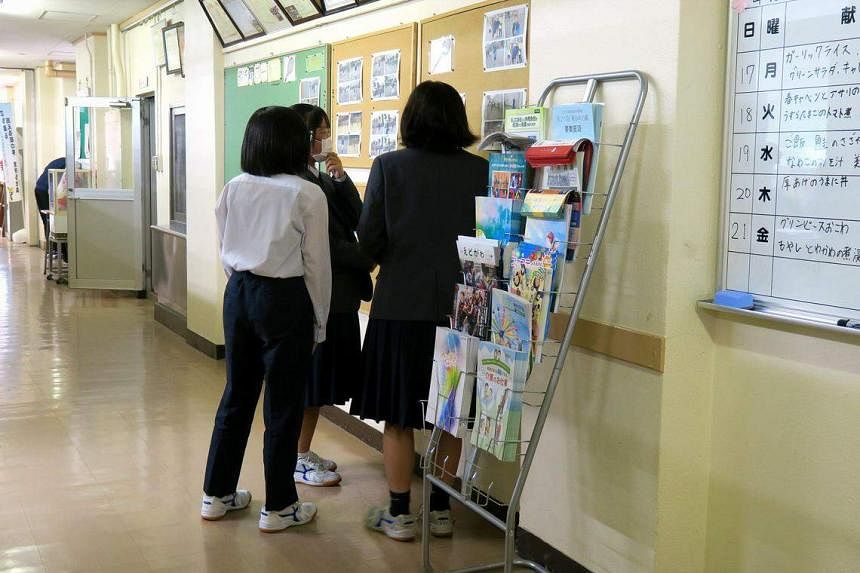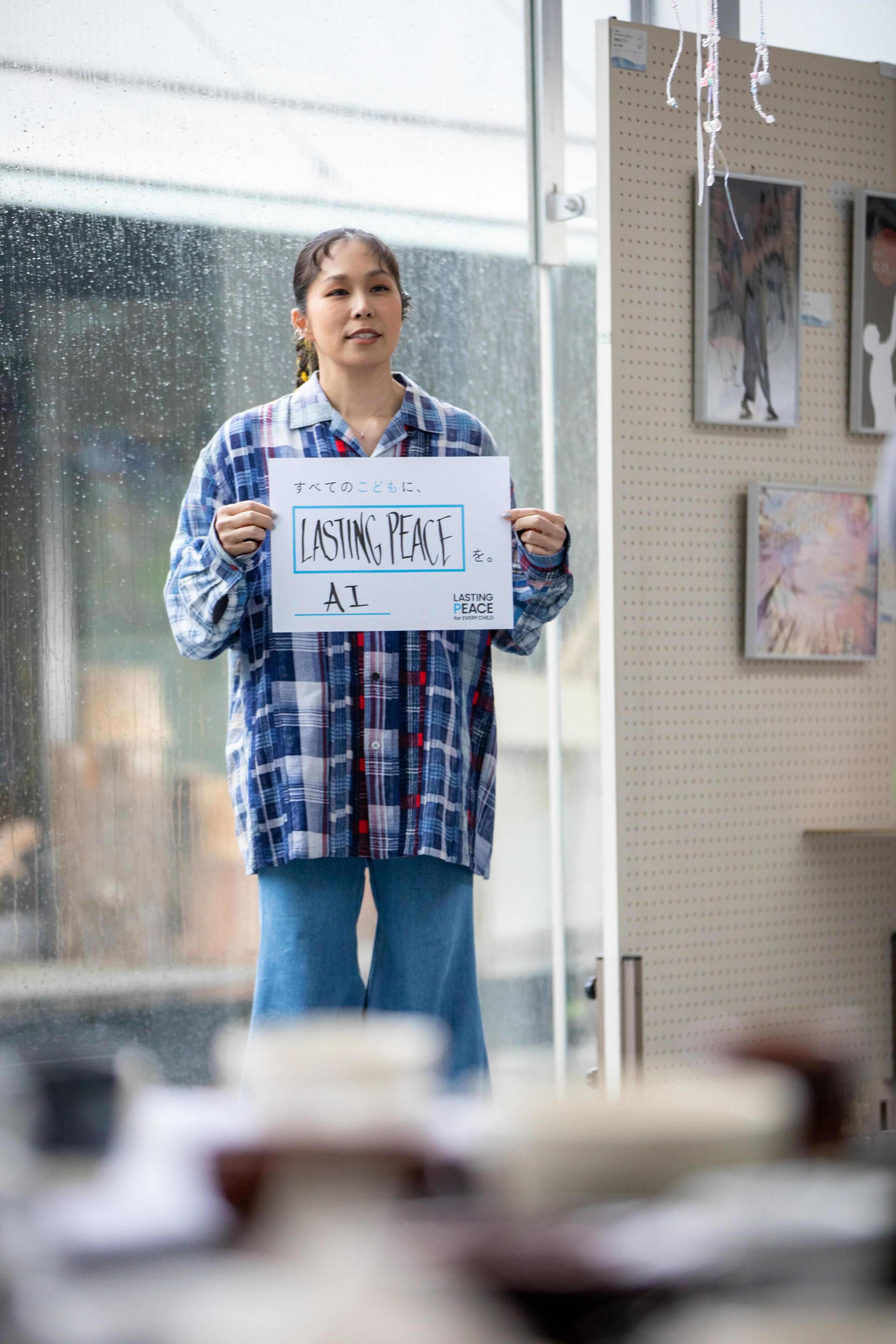TOKYO – Mr Hinata Kubo attended senior high school wearing a skirt “once or twice a week”, alternating with trousers depending on his mood.
That was a personal choice, with his alma mater giving students the freedom to mix and match their outfits in a policy of “genderless uniforms” that is gaining traction throughout Japan.
In essence, schools with such a policy allow boys to wear skirts for their uniforms – though boys in skirts are still very rare nationwide – and girls to don trousers. Students are also allowed to choose whether to pair their outfit with a necktie or a ribbon.
Mr Kubo, now a first-year undergraduate in social sciences at the University of the Ryukyus in Okinawa, tells me in an online interview that he jumped at the opportunity to try something different. A skirt, he says, is cooler, especially during Japan’s sweltering summers.
“I do not see how or why this is a big deal,” says the 18-year-old, who does not have a picture of himself in a skirt for this reason. “Rather than looking at gender through stereotypes, the ideal society is one where everyone can choose how they wish to express themselves.”
He frowns upon loaded terms such as “cross-dressing”. Just as cosmetics, although historically the realm of females, have become popular among men, clothes should have no gender bias, he says.
And indeed, he hopes Japan can one day be a society tolerant of differences, one that cultivates and respects individuality and personal freedoms.
Mr Kubo no longer wears a skirt as he “no longer feels like it”. He admits having been given curious looks by passers-by en route to school, though generally people would shrug and move on. But he suffered online vitriol from anonymous keyboard warriors after Japanese broadcaster NHK did a feature on him.
His courage is inspiring. Japan is, after all, a society that frowns upon people who look, think or act differently from the supposed “norm”.
Those who do often get bullied, especially in schools. Bullying is such a problem that one insurer will start selling a policy in October to help parents offset the cost of their children’s counselling or school transfers.
That Mr Kubo’s alma mater is in Hiroshima – Kake High School in Akiota town – seems pertinent on a weekend when Group of Seven (G-7) leaders will convene in its eponymous prefectural capital for a summit that is set to make a statement about diversity issues, such as gender equality and sexual minority rights.
Patchy diversity record
Yet Japan’s track record on diversity – of all sorts – has often come under scrutiny.
Unlike other G-7 nations like Britain, which enacted an Equality Act in 2010 that prohibits all forms of discrimination, whether it is based on sexual orientation, gender, disability or race, Japan does not have anything similar.
Its pledges to build “a society where women can shine”, even holding a regular international women’s summit, ring hollow as it has had to repeatedly push back its targeted deadlines for more women in the boardroom.
It ranks a lowly 166th out of 190 nations for women’s representation in Parliament. Female politicians are often harangued for being too public-facing, outspoken, and not conforming to the traditional image of subservient women walking three steps behind their husbands.
Couples are fighting for the right to keep their respective surnames after marriage – an issue driven by women who are made to take the husband’s family name. Ruling Liberal Democratic Party (LDP) conservatives say allowing this would destroy the sanctity of marriage.
And despite many high-profile Japanese athletes being haafu (mixed race), there remains a sense of what it means to “look” or “be” Japanese.
This has manifested in how online commentators – they are always faceless – cheered tennis player Naomi Osaka, born in Japan to a Haitian-American father and a Japanese mother, when she was triumphant but were quick to put her down as “not Japanese” when she hit a rough patch.
A silver lining is the rare election of an ethnically different lawmaker – Ms Arfiya Eri, 34, who is of Uighur descent – in a by-election in April, though observers say she benefited from a split opposition vote.
Diversity also extends to sexual minorities, and Japan’s LGBTQ (lesbian, gay, bisexual, transgender and queer) community is facing a tough battle against prejudice and bigotry, again from staunch conservatives who argue for the need to “protect sexual majorities”.
Another argument is how granting gay rights would lead to an increase in crime in places like hot springs, though this begs understanding. Japan’s largest talent agency, Johnny & Associates, which manages boy bands like Smap and Arashi, is now under fire for the alleged decades-long sexual abuse committed by Johnny Kitagawa, the late pop Svengali.
All this is despite public opinion polls showing that more than half of Japanese are in favour of same-sex marriage. Boys’ love is also a common theme in Japanese manga, anime and their highly popular drama adaptations. These include My Love Mix-Up! (2021) starring Ren Meguro, 26, of boyband Snow Man and Shunsuke Michieda, 20, of boyband Naniwa Danshi, and My Beautiful Man (2021-present) starring actor Riku Hagiwara, 24, and Yusei Yagi, 26, of boyband Fantastics From Exile Tribe.

Yet policymaking, again in the realm of LDP conservatives, has failed to keep pace with changing social mores. They argue that pushing the needle will be a recipe for a baby bust and will accelerate the demographic doomsday.
In February, Prime Minister Fumio Kishida sacked his close aide Masayoshi Arai, 55, after Mr Arai said he “hates the sight” of LGBTQ couples and “shudders at the idea of being next-door neighbours with them”.
Japan, being the only G-7 country without any legal framework to ban discrimination against sexual minorities or allow same-sex unions, has thus come under intense pressure.
On May 12, 15 diplomatic missions in Japan, led by United States Ambassador Rahm Emanuel, issued a video message urging Tokyo to pass a long-delayed law to protect LGBTQ rights.
Not wanting the issue to blemish what Japan hopes will be a successful G-7 summit, the LDP rushed to submit a watered-down Bill to the Diet this week.
The irony: The Bill is so toothless that it has disgusted the very communities it is supposed to protect.
While a draft said discrimination based on sexual orientation “should not be permitted”, this was amended to say “unreasonable discrimination must not occur”, inviting the question – does “reasonable discrimination” exist in the first place?
One unnamed LDP politician even told the Yomiuri daily that it was enough to submit the Bill to Parliament “for show”, and that there was “no need to follow through”.
Starting young
The “genderless uniform” policy in many schools was first born out of an acknowledgement that some students may be struggling with their sexual identity. But recent anecdotal evidence has shown that the main reasons for the outfit choices of many students – like Mr Kubo – are comfort and a belief that society should be gender-blind.
This has also been the case at Mizue Daini Junior High School in Tokyo’s Edogawa ward. Principal Seigo Takizawa says: “There are students who are uncomfortable with their gender. While that was the starting point, we recognise there are girls who prefer wearing trousers, and it is good to give them a choice.”
Third-year student Saya Koseki, 14, wears them to school daily, saying that she finds trousers comfortable.

Mr Takizawa says the policy, which began three years ago, was highly rated by parents. To dispel colour-based gender stereotypes, the school uses black for its male and female signs, instead of blue and red.
Edogawa ward eventually issued “genderless uniform” guidelines to all 32 public junior high schools under its watch. Mr Naoya Seki of the ward’s education board says: “We felt it was necessary to relook what has long been common wisdom in society, and respect each and every student as individuals.”
In ways big and small, Japanese schools are at a crossroads as a growing diversity in the student population pushes them to grapple with their tradition of sticking rigidly to rules – some of which are dated, while others beg common sense.
Naturally, there is a distinction between promoting true inclusion, which is progressive, and letting children go unpunished for wilfully breaking school rules – like playing truant – which goes against the purpose of education.
Just in March, a teenager with an African-American father and a Japanese mother was barred from attending his own graduation ceremony at his school in Himeji in Hyogo prefecture. His offence? His hair was in the natural cornrow style.
All this ties back to the push for Japan to become a more diverse society that respects individual differences. One editorial in the Yomiuri newspaper in October 2022 had also called for the abolition of “anachronistic rules”.
This also applies to extenuating circumstances, said Nagoya University expert Ryo Uchida, who told NHK that school rules should not defy common sense.
He was commenting on an incident during a January cold snap when a boy was forced to remove his jumper despite temperatures falling below zero. The school rules had allowed “sweaters, mufflers and gloves”, but said nothing – not even that they were disallowed – about coats and jumpers over the uniform.
There is at least one case before the courts. An Osaka woman, now 22, has sued her former high school for mental distress after she was forced to dye her naturally brown hair black.
Ultimately, schools are important in planting the seed of recognition that there is no one single “look” that defines a Japanese person.
Mixed-race Japanese singer-songwriter Ai, 41, believes it is important to start young. She has been active in advocacy work promoting peace, compassion and diversity, championing issues such as children’s rights, a nuclear-free world and equality for sexual minorities.

Ai, who will perform in Hiroshima on Sunday with local children on the summit sidelines, says she hopes the G-7 summit will be a catalyst for peace, love and tolerance.
“My dream society is one that is compassionate, where people communicate with one another, one where people talk and listen about their differences,” she says. “Only then can we understand, respect, and be more accepting of one another.”


